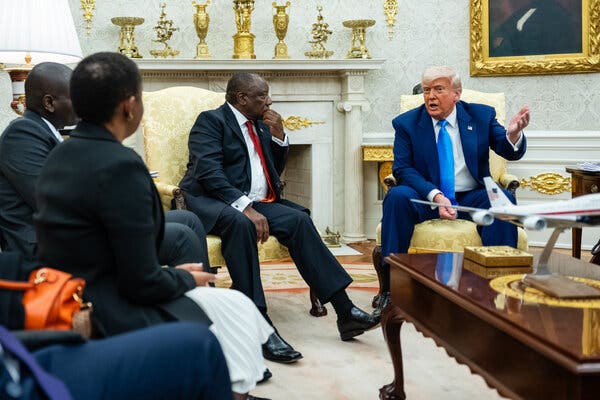U.S.-Brokered Peace Agreement Between Rwanda and DR Congo Marks a New Chapter
The United States has played a pivotal role in facilitating a historic peace agreement between Rwanda and the Democratic Republic of the Congo (DR Congo). This development comes after months of intense diplomatic efforts led by the U.S. government, culminating in the signing of a landmark deal on June 27 in Washington, DC. The agreement was signed by Rwanda’s Foreign Minister Olivier Nduhungirehe and DR Congo’s counterpart, Therese Kayikwamba Wagner, marking a significant step toward stability in the Great Lakes region.
A Breakthrough in Regional Tensions
President Donald Trump announced that he expects to meet with the leaders of both Rwanda and DR Congo in the coming weeks at the White House. This meeting is expected to focus on finalizing the terms of the agreement and ensuring its successful implementation. Trump emphasized the importance of the deal, calling it a breakthrough in resolving long-standing conflicts that have plagued the region for decades.
The agreement addresses several critical issues, including the neutralization of the FDLR (Forces Démocratiques de Libération du Rwanda), a militia linked to the 1994 Genocide against the Tutsi. The group has been a source of tension between the two nations, and its dismantling is seen as a key component of the peace process. Additionally, the agreement includes provisions for the lifting of Rwanda’s defensive measures, which were put in place due to ongoing security concerns.
Commitment from Both Sides
President Paul Kagame of Rwanda has expressed strong support for the agreement, commending the U.S. for its role in mediating the talks. He reiterated Rwanda’s commitment to fully implementing the terms of the deal, while also urging DR Congo to uphold its obligations. Kagame stated that the agreement represents a major step forward in regional cooperation and peacebuilding.
Rwanda’s Foreign Minister, Nduhungirehe, echoed these sentiments, emphasizing that dismantling the FDLR should be the top priority for both countries. He highlighted the importance of collaboration between the two nations to ensure the success of the agreement and prevent future conflicts.
The Role of U.S. Diplomacy
The U.S. Secretary of State, Marco Rubio, was present during the signing ceremony, underscoring the country’s active involvement in the negotiations. Trump praised the efforts of his senior advisor for Africa, Mossad Boulos, who played a central role in the mediation process. He acknowledged the challenges faced during the talks, noting that many had doubted the possibility of reaching an agreement. However, he remained optimistic about the future of the region.
Trump described the conflict as a “horrible 30-year war” that has caused immense suffering and instability. He expressed hope that the agreement would bring lasting peace and prosperity to the region, while also strengthening U.S. ties with African nations.
Broader Implications for the Region
The peace agreement is not only a victory for Rwanda and DR Congo but also a positive development for the broader Great Lakes region. It sets a precedent for diplomatic solutions to complex conflicts and highlights the importance of international cooperation in promoting stability. As the leaders of both countries prepare to sign the final agreement, the focus will shift to ensuring that the terms are implemented effectively and that the region moves toward a more peaceful and prosperous future.
The U.S. continues to play a vital role in fostering dialogue and reconciliation in Africa, and this agreement serves as a testament to the power of diplomacy in resolving even the most entrenched conflicts. With continued commitment from all parties involved, the promise of peace in the region can become a reality.






